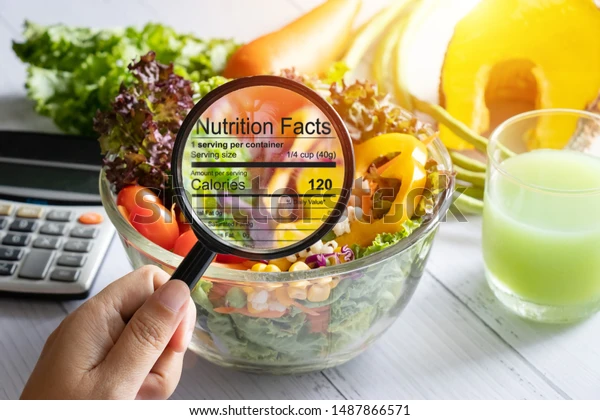Jokes about January containing 578 days - and everyday small talk about how rubbish short days and cold weather is - can mask an important issue. Winter can be bad for your health! Not just in terms of your mood either. Colds, flu and other infections can lay you and the rest of your family low when temperatures dip. Making it vital to consider extra steps you can take to protect your immune function in winter, particularly with what you eat and drink.

Winter blues, bugs and other ailments
Why does winter create so many health challenges, from grandparents right through to your little ones? Firstly, nothing spreads infections like central heating and limited ventilation, especially in schools and workplaces! Another challenge is that sunshine is in such short supply, and we tend to have reduced amounts of fresh air and outdoor exercise in winter.
Also, it becomes more common to replace a nice glass of cold water with a hot beverage!
Making a point of opening a window slightly, walking outdoors and hydrating well is just the start of your seasonal fightback. You need to ‘wrap up’ all the facts about winter nutritional protection for your family.
Particularly as putting ‘the good stuff’ on your plate, or taking supplements, can also counterbalance another seasonal problem; comfort eating in winter, and the natural instinct to eat lots of carbs in cold weather.
This is a guide to winter nutrition that can improve immune function strength and make up for anything your diet is lacking.
Replacing natural Vitamin D
This is certainly a nutritional deficit in winter. Though your body’s own production of vitamin D can also be hindered in Autumn and Spring too, as the amount of sunlight you’re exposed to becomes inadequate.
Vitamin D is important to our immune function, but the ‘Sunshine Vitamin’ is also linked to how we absorb calcium, and therefore our bone health. Research is well underway to pinpoint other benefits of vitamin D, including its ability to make cells more disease resistant.
This all makes it vital to find vitamin D supplements if the food sources mentioned below are ‘off the menu’ for you.
However, you can increase how much vitamin-D-rich food you eat by consuming dairy products and eggs, and by adding vitamin-fortified foods to your diet. Some of the best sources of vitamin D are oily fish, and cod liver oil, which are also a great way to keep your omega-3 consumption at healthy levels.
Immunity-boosting Vitamin C
Vitamin C’s importance is well known. However, its abilities to promote healing and support immune function become even more essential in the winter, which is why it’s widely discussed as a way of fighting off common viruses in the colder months.
Also known as ascorbic acid, vitamin C is involved in many of the body’s protective processes, so keeping levels high in winter can also improve your skin health on cold, wet winter days, when too little fresh air takes its toll.
The best-known sources of vitamin C are citrus fruits and blackcurrants. It is also found in dark leafy vegetables, tomatoes, peppers, cranberries, broccoli and other fruits and vegetables.
One of the best ways to make sure you have enough vitamin C is by adding bilberry extract to your all-around winter nutrition. As we covered elsewhere in our naturopathic resources, bilberry extract
contains high levels of anthocyanins, the bioactive component that gives purple, blue and red berries their colour. This pigment is an antioxidant, anti-inflammatory and antimicrobial ingredient, showing strong promise of not only supporting human immune function but also eye health too.
Our eyes certainly need to work harder in the winter, and cold winds can create or worsen dry eye issues in older people.
Protecting potassium intake
Replacing the nutritional elements that can be deficient in winter includes finding foods that are a rich source of potassium.
Potassium is an electrolyte, one of the essential minerals that support natural growth, repair and general health. Each electrolyte has its own tasks, and potassium includes supporting your body’s fluid balance and maintaining blood pressure levels. It also plays a role in carbohydrate metabolism.
This all explains why if your levels of potassium are reduced, the effect can be the moodiness, tiredness and sluggishness that are sometimes associated with life in winter.
How can it become depleted in colder months? One strong possibility is that you are eating for comfort and convenience, opting for more processed foodstuffs than you would at other times of the year. They often contain high levels of sodium, which upsets your potassium balance.
The solution is boosting your intake of fresh vegetables – including potatoes, sweet potatoes and squashes – and fruits like avocados and bananas.
Zinc and winter nutrition protection
This is another of the essential minerals winter can delete. A zinc imbalance can have a ripple effect on your ability to absorb other nutrients from your food too. That’s because zinc is not only a valuable antioxidant and immunity booster, it also supports good digestion.
Zinc becomes especially ‘hard-working’ in winter, as it’s involved in every cell in our body, helping our natural defences to work properly.
Finding ways to have the correct amount in your daily diet may rely on well-balanced supplements containing electrolytes, though valuable food sources of zinc include beans, spinach, nuts, beef, and seafood.
Fibre, not stodge
There’s a common myth that if people eat more bread and other starches as winter comfort food, they have ticked the box on ‘eating plenty of fibre’.
It’s particularly easy to eat bread when it's covered in butter, or carbs in the form of pastries and cakes when the weather is awful, and the dark nights seem endless!
The truth is that many people eat far too little fibre all year round and need help in understanding genuine sources. Of course, you substantially increase fibre intake by switching to wholegrain bread and pasta for example. However, it’s also found in many fruits and vegetables, as well as seeds and nuts.
Cooking up ways for better immunity in winter
The idea of a salad to get lots of vegetables doesn’t seem appealing in winter, but there are lots of quick and easy recipes for hearty winter soups, stews and casseroles for colder months. As well as increasingly creative ways to cook with nuts, seeds and fruit for better winter nutritional protection.




